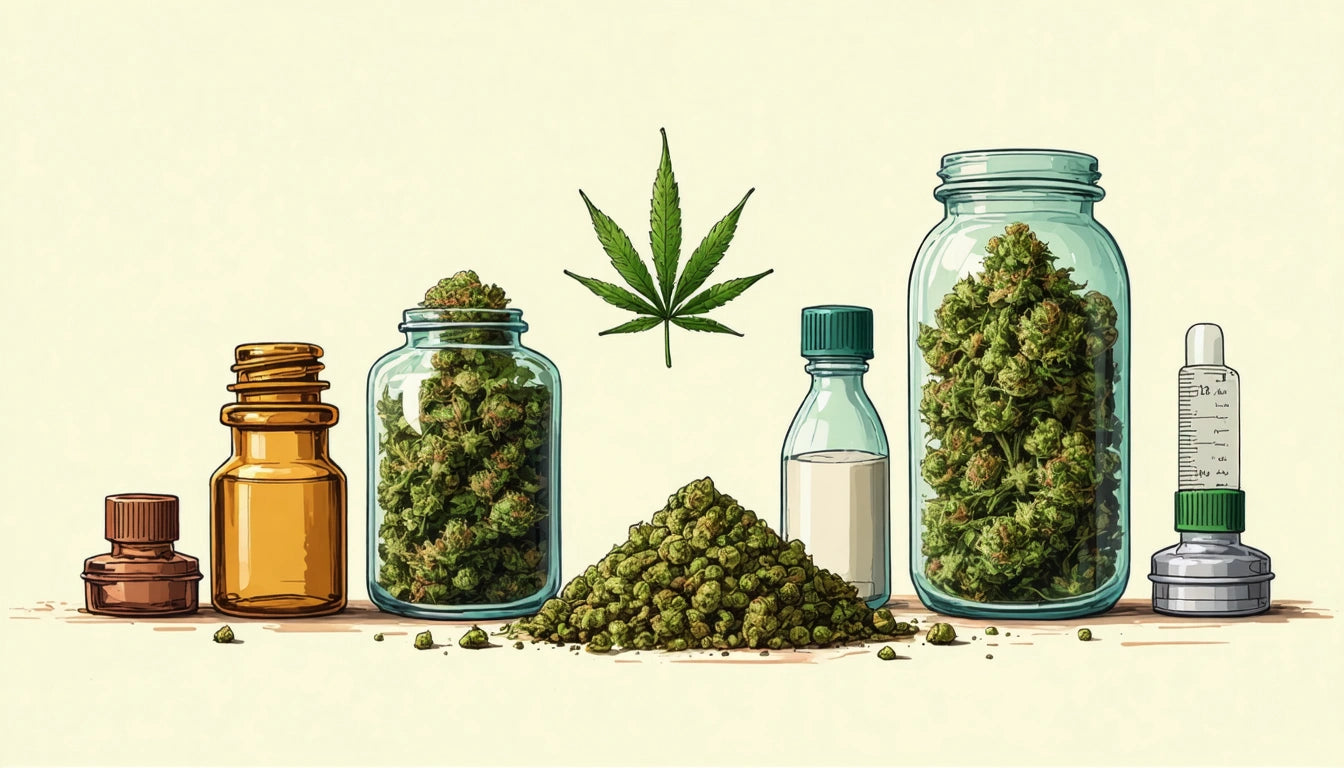Table of Contents
Legal Status of Magic Mushrooms and Edibles in Florida
Florida maintains strict regulations on psychoactive substances, including psilocybin-containing mushrooms. This comprehensive guide examines whether magic mushrooms are legal in Florida, the status of mushroom-derived products, and the broader context of psychedelic regulation in the state.
Current Legal Status of Magic Mushrooms in Florida
Are magic mushrooms legal in Florida? The simple answer is no. Psilocybin and psilocin, the primary psychoactive compounds found in magic mushrooms, are classified as Schedule I controlled substances under both Florida state law and federal law. This classification indicates that these substances are considered to have a high potential for abuse and no accepted medical use, placing them in the same category as heroin and LSD.
Florida Statute § 893.03 explicitly lists psilocybin and psilocin as prohibited substances. This means that psychedelic mushrooms, regardless of their form, are illegal to possess, cultivate, distribute, or sell within state boundaries.
Penalties for Possession and Distribution
For those wondering "are shrooms illegal in Florida," understanding the potential legal consequences is important:
- Possession of psilocybin mushrooms is generally charged as a third-degree felony
- Penalties can include up to 5 years in prison and fines up to $5,000
- Possession of larger quantities with intent to distribute carries even harsher penalties
- Manufacturing or cultivating magic mushrooms can result in second-degree felony charges
The severity of penalties often depends on the quantity involved, prior criminal history, and whether there are aggravating factors such as proximity to schools or involvement of minors.
Medical Research and Therapeutic Exceptions
Despite the general prohibition, limited research on psilocybin's therapeutic potential is occurring nationwide. However, unlike states such as Oregon and Colorado that have created frameworks for therapeutic use, Florida currently has no legal exceptions for medical or therapeutic use of psilocybin.
Research institutions conducting FDA-approved studies may have special permissions, but these do not extend to general medical practice or public access. For anyone seeking to store substances legally for research purposes, proper storage containers with secure, compliant closures are essential for maintaining both safety and legal compliance.
Are Edibles Legal in Florida?
When asking "are edibles legal in Florida," it's important to distinguish between cannabis edibles and psilocybin edibles:
Cannabis Edibles
Cannabis edibles are available only to qualified medical marijuana patients in Florida. As detailed in Florida's marijuana laws guide, the state has a regulated medical marijuana program that permits certain forms of cannabis consumption for approved patients. Recreational cannabis remains illegal.
Psilocybin Edibles
Psilocybin-infused edibles, such as chocolates, gummies, or other food products containing magic mushroom extracts, are completely illegal in Florida. The prohibition extends to all forms of psilocybin, regardless of how they are consumed or packaged.
Mushroom Gummies and Alternative Products
Are mushroom gummies legal in Florida? This depends entirely on their composition:
- Gummies containing psilocybin or psilocin are illegal
- Products marketed as "mushroom gummies" containing only non-psychoactive mushrooms (like reishi, lion's mane, or cordyceps) are generally legal
- Some companies sell "adaptogenic" mushroom products that contain no controlled substances
Consumers should be wary of products marketed with ambiguous terminology. Legal mushroom supplements must contain no controlled substances and comply with FDA regulations regarding dietary supplements.
How Florida Compares to Other States
Florida's approach to psychedelic mushrooms is more restrictive compared to several other states. According to this state-by-state guide, jurisdictions like Oregon, Colorado, and several municipalities have enacted various forms of decriminalization or regulated access:
- Oregon: Implemented a regulated system for psilocybin therapy
- Colorado: Decriminalized personal possession and created a framework for regulated access
- Cities like Oakland, Santa Cruz, and Ann Arbor: Decriminalized plant-based psychedelics
Florida has not initiated any similar reforms, maintaining strict prohibition at both the state and local levels. This contrasts with the state's approach to medical marijuana, where limited reforms have been implemented.
For comparison, Texas also maintains strict prohibition on psilocybin mushrooms, similar to Florida's approach.
Future Outlook for Psychedelic Legislation in Florida
While there are no immediate signs of legislative change regarding psychedelic mushrooms in Florida, the national trend toward reconsideration of psychedelic substances could eventually influence state policy. Several factors may shape future developments:
- Ongoing clinical research demonstrating therapeutic benefits
- Changing public attitudes toward psychedelics
- Success of regulated programs in other states
- Advocacy efforts focused on medical applications
For now, anyone in Florida should understand that magic mushrooms remain strictly prohibited, regardless of their form or intended use. The legal landscape for psychedelics continues to evolve nationally, but Florida maintains its conservative approach to these substances.
Those interested in the broader context of psychedelic regulation should consult this comprehensive guide to magic mushroom legality across the United States.











Leave a comment
All comments are moderated before being published.
This site is protected by hCaptcha and the hCaptcha Privacy Policy and Terms of Service apply.